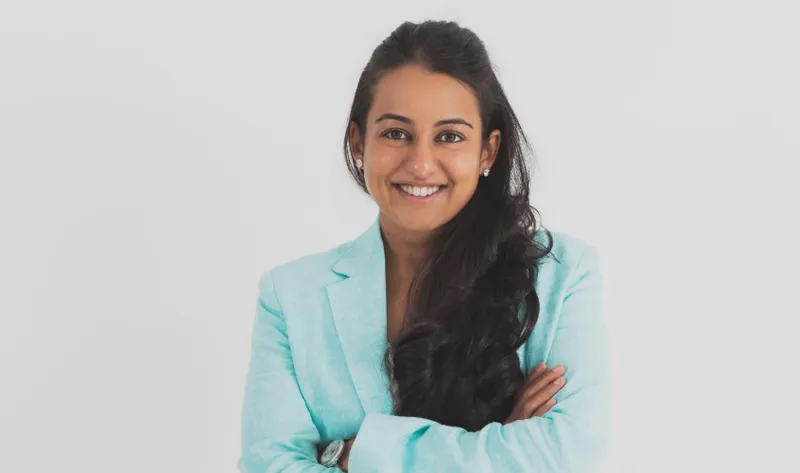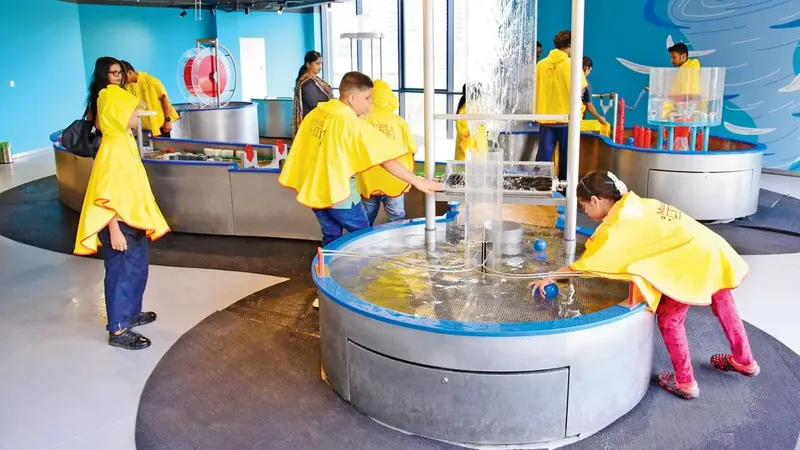[100 emerging women leaders] Tanvi Jindal Shete’s museum is making children responsible and future-ready
Museum of Solutions (MuSo), started in November 2023, features exhibitions, activities, and learning experiences on topics like sustainability, social justice, health, and the environment.
Tanvi Jindal Shete’s experience as a Teach for India fellow made her aware of the importance of education and curiosity in young minds. She realised that there was a significant gap in engaging educational spaces for children in Mumbai.
“Inspired by visits to children's museums worldwide, I saw first-hand how these spaces can spark creativity and learning. While adults often overthink solutions, children bring a fresh, bold perspective. Their innate curiosity and imagination are key to tackling the challenges of tomorrow,” she tells HerStory.
This led her to start the Museum of Solutions (MuSo) in November 2023. The museum features exhibitions, activities, and learning experiences on topics like sustainability, social justice, health, and the environment.
“Unlike traditional museums where visitors are passive observers, MuSo engages children as active participants in solving real-world challenges. Our goal is to create an environment where learning happens through hands-on, immersive experiences, and children become future change-makers,” she adds.
MuSo has six floors, each dedicated to different experiential exhibitions and activities.
Shete explains, in the Make Lab, children are encouraged to adopt a "Maker Mindset" by solving problems and developing technical skills through fun, interactive projects. They can participate in robotics workshops where they learn about circuitry and how to build their own robots.
In “un-make” activities, children learn how to reassemble different objects. They also get hands-on experience using safe hand and power tools to open, screw, drill, cut, sand, and polish objects.
In the Discover Lab, children learn about local issues, such as the challenges faced by the Mithi River and the Koli fishing community. Through storytelling and role-playing, they explore the effects of urbanisation and brainstorm sustainable solutions.
The museum also offers an interactive activity where children explore waterways, solve puzzles, and find out ways to help save the Mumbai’s valuable resources.
The museum also runs a film about Puddles, a sea turtle that travels from Lakshadweep back to her home. Along the way, she faces the harmful effects of plastic and toxic waste dumped by humans. Through this experience, the museum aims at making the students aware of pollution.
At the Grow Lab, children can learn about beekeeping, composting, gardening, and sustainable farming methods. In the Play Lab, children explore STEM concepts through playful games and physical activities.
How it all started?

Tanvi Jindal Shete
Education and learning have been a big part of Shete’s life.
After completing her degree in Economics from New York University, she became a Teach for India fellow, an experience that she believes further shaped her journey in the education space.
Daughter of industrialist Sajjan Jindal, Shete serves as the Director of the JSW Foundation. She has also worked with the Akanksha Foundation, where she focused on education in low-income communities.
She recalls that the idea for the Museum of Solutions (MuSo) was planted during her travels in late 2016.
After visiting many children's museums around the globe, she realised the urgent need for an engaging learning space for children in Mumbai.
“I was inspired by how these institutions fostered curiosity, creativity, and a sense of wonder in young minds. I believe that children’s unfiltered curiosity, imagination, and fearlessness make them natural problem solvers. I wanted to build a space where children could explore, experiment, and discover their potential as future changemakers,” she says.
She explains that the goal of the museum is to cultivate critical thinking, creativity, and collaboration through immersive, interactive experiences.

The museum offers nteractive activities where children explore and learn
“By addressing real-world issues like sustainability and social equality, we're not only making children aware of global challenges, but also making them active participants in finding solutions. Since we have immersive elements, activities, etc., children can learn and have fun together,” she adds.
Shete explains that the museum aims to engage all ages by offering a wide range of activities. “From book launches and live performances to interactive exhibitions, we provide programmes that cater to various interests,” she says.
The ticket price is Rs 999 onwards for children between 2–17 years and Rs 499 onwards for adults who are above 18.
As a not-for-profit organisation, MuSo is primarily funded by the JSW Foundation. Additionally, the museum has received support from various organisations, including Axis Bank, Epsilon Carbon, APL Apollo, Pirojsha Godrej Foundation, HSBC, and Abby Lighting.
“We are also proud to partner with Standard Chartered in launching the Future Makers program,” she adds.
Challenges
One major challenge Shete faced was finding the right balance between self-exploration and guided learning.
“We wanted kids to have the freedom to explore independently while also offering support from facilitators when needed. It required careful planning to ensure both structured and unstructured learning opportunities, allowing children to take charge of their own learning while benefiting from expert guidance,” she says.
On the personal front, Shete’s journey too had a few roadblocks.
Balancing her personal responsibilities as a mother along with running the business has been a challenge. However, her perseverance and her team’s support has helped her in overcoming these challenges.
Acknowledging the challenges women entrepreneurs face, she advises women entrepreneurs to be passionate, persistent, and collaborative.
“Your enthusiasm will drive your work and inspire others. Have a clear vision and persevere towards it while partnering with like-minded individuals and organisations who can amplify your impact. But above all, it is also important to prioritise self-care, seek mentorship, and believe in your abilities,” she shares.
Edited by Megha Reddy


![[100 emerging women leaders] Tanvi Jindal Shete’s museum is making children responsible and future-ready](https://images.yourstory.com/cs/4/d4ffdb60a78511eda2036d5930e44559/100EWLKavitha-KanaparthiFeatureImage-1727868216753.jpg?mode=crop&crop=faces&ar=16%3A9&format=auto&w=1920&q=75)




